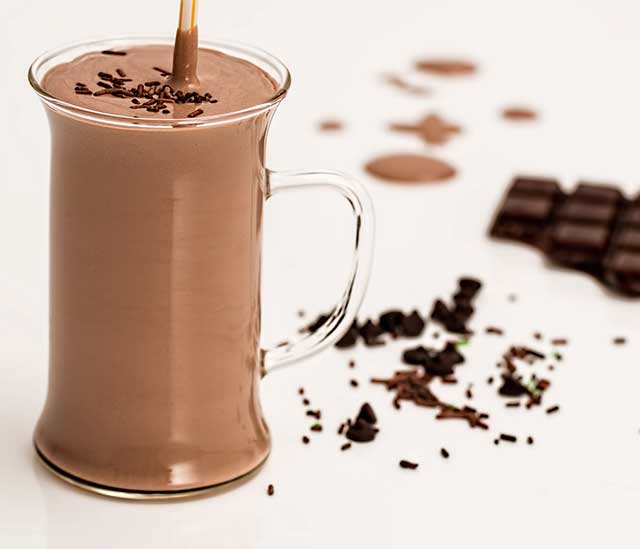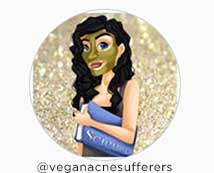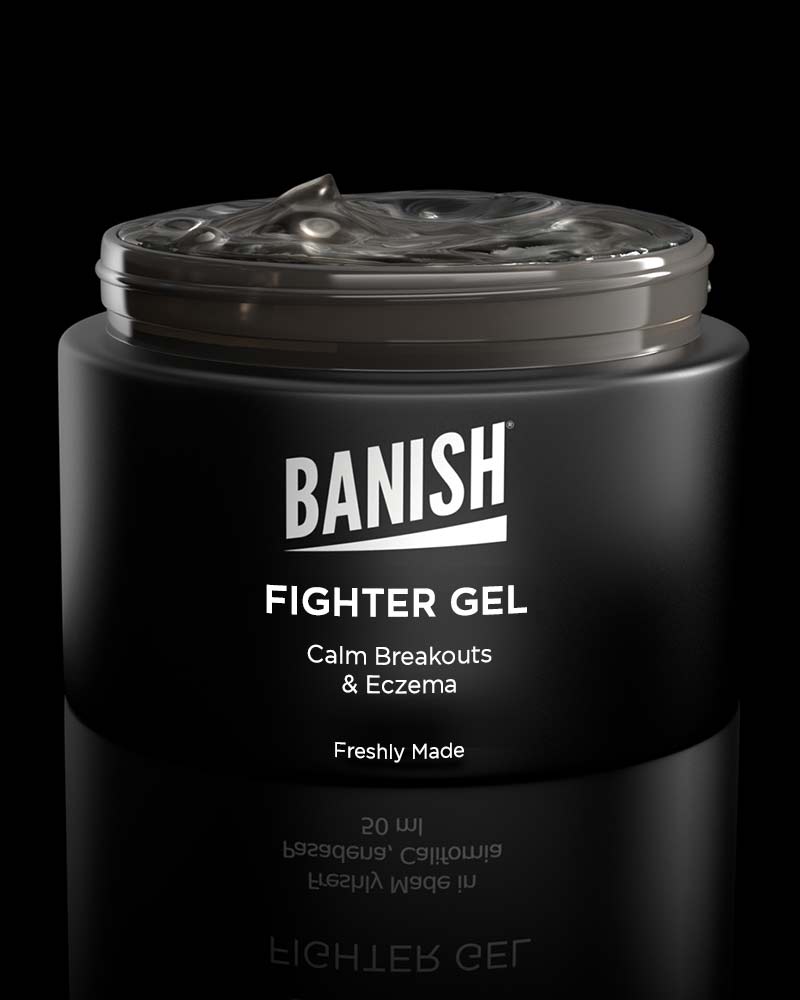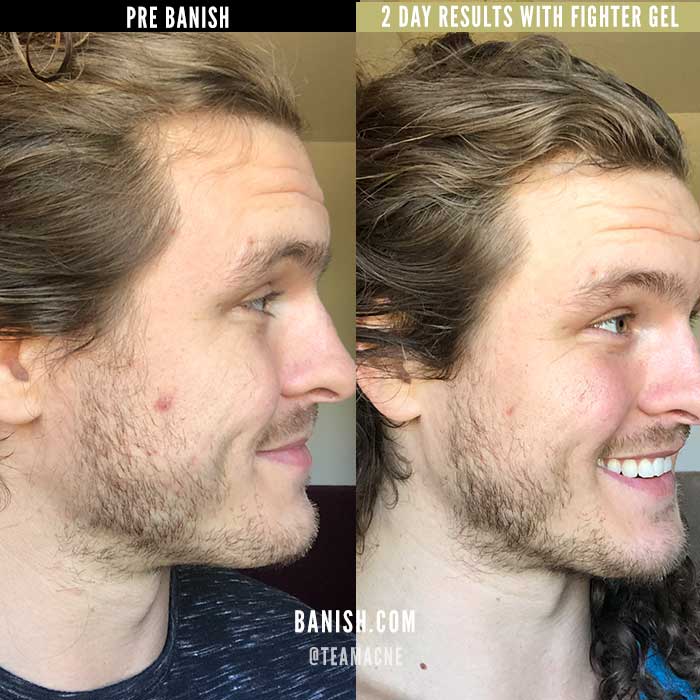
It's the news none of us wanted to hear - the news we were all dreading. Chocolate may just cause your acne problems!
A new study found that, when 25 male acne prone subjects consumed 25 g of 99% dark chocolate per day for 4 weeks, there was a statistically significant change in acne scores and numbers of comedones and inflammatory papules. In fact, acne lesions doubled by the end of the 4 weeks.
Yikes! Nobody wants to do anything that's going to double their acne!
That's about 2 tablespoons of chocolate a day, every day for 4 weeks. Seems like a lot, when you put it that way, right?! But in reality, it isn't that much. Some of us consume chocolate daily, in higher amounts than that. Heck, I just had two tablespoons of chocolate chips in my pancakes this morning!
However, some things to note is that this study was not a large study, and it was not placebo-controlled.
A different study back in 2014 that was double-blind and placebo-controlled, did find that, when 14 men swallowed capsules filled with unsweetened 100% cocoa, or gelatin, or a combination of the two, there was an increase in acne lesions for cocoa consumption. However, the age range of these acne-prone men was 18-35, which may be considered a limitation of the study.
Conversely, a study done in 2014, with three groups (control, dark chocolate, and white chocolate), with a diversity of male and female subjects (numbering 60 total subjects all with moderate to severe acne), showed no increase in acne lesions in the dark chocolate group which consumed 100g (that's almost TWO Giddy Yo Yo chocolate bars!) daily for 30 days. The white chocolate group wasn't so lucky, with a significant increase in all types of acne lesions. This study was the same length as the 2015 study, there were more subjects studied, the doses of chocolate were much higher (4x the amount!) and the study was divided among men and women. Neither study was placebo-controlled, which would have served to make the findings more conclusive - yet the results were extremely different.
So we have 3 studies, now - 2 that suggest that even the purest chocolate may cause acne in male acne-prone subjects, with some serious faults - and 1 that suggests even in moderate-to-severe acne patients, male and female, dark chocolate does not increase acne lesions.
Are you sufficiently confused, yet?
Let's start back at the beginning.
One of the first studies of its kind, back in the 60s, suggested that there was no effect on acne by eating chocolate. Another study found no association between acne and chocolate consumption. Another study in 2003 also suggested no association.
However, in 2009, a population-based, cross-sectional study of diet and lifestyle variables associated with acne was investigated in 3308 18-19 year olds in Oslo. While there did appear to be an association between chocolate/sweets consumption and acne in male subjects, chocolate was also lumped in with sweets in a broader category (how do we know they were actually consuming chocolate and not other sweets?), and these associations disappeared in the adjusted model. The limitations of this study is that it was all self-reported, through a 4-page questionnaire. While this doesn't mean the study is irrelevant, it just means there may be some recall bias affecting the results. So, in retrospect, these findings aren't that exciting nor are they that convincing.
It seems we have the bases covered. There is double-blind, placebo-controlled data; there's studies with processed chocolate bars, and 100% cocoa; there's data with males and females; and there's data with self-reporting as well as actual clinical analysis. Future studies should look into which components of chocolate (fats, sugars, etc.) might be responsible for the effects, and whether fat-free chocolate would have a different effect.
So what does this all mean? Is chocolate bad for acne or is it not? Does this mean you need to stop eating chocolate?
No, of course not - it just means that chocolate may be a trigger, and you you may want to cut back and see how your skin fares. I can go without eating chocolate for weeks, and go to eating chocolate every day for weeks with no changes in my skin - I'm lucky like that. Chocolate does not aggravate my acne and I've concluded this based on an elimination and submersion diet.
Chocolate does have a mechanism that may serve as a pathway to affect acne, however. One study found that chocolate may "prime human blood" to release more autoinflammatory syndromes upon coming into contact with two acne-causing bacterias. This means that chocolate does have the potential to affect acne, especially in people who are already acne-prone, and, according to the leading studies, males are more susceptible.
This latest study only serves as a piece to the greater puzzle. We still need more studies, more high-quality evidence.
The bottom line is, everyone is different, and so if you eat a lot of chocolate, and you have skin issues - try and eliminate it for a while (especially if you're eating milk chocolate or white chocolate, just eliminate that crap altogether - gross). If you don't notice a difference, it probably doesn't make any meaningful change in your skin. Lucky you! If you do notice a difference, it's safe to say you may need to restrict your chocolate consumption! Sorrrrryyyy!
----------------------------------------------------------------------------
Guest Blog By:

I first got acne in high school, and it came back in my early adulthood. I was able to struggle through those difficult times and come out of it a stronger, wiser, healthier person as a result. I'm here to help you do the same thing!























1 comment
Chris P.
Hi, nice post. It’s rubbish, isn’t it! Dark chocolate causes acne because of the cocoa, milk chocolate’s bad because of the fat and sugar, and white chocolate has even more sugar!
I have found that the occasional instant hot-chocolate (ideally one marketed for those trying to lose weight) is actually alright and can give you that chocolate fix without it causing breakouts.
Chris P.
www.acneadviceformen.com
Leave a comment
All comments are moderated before being published.
This site is protected by hCaptcha and the hCaptcha Privacy Policy and Terms of Service apply.